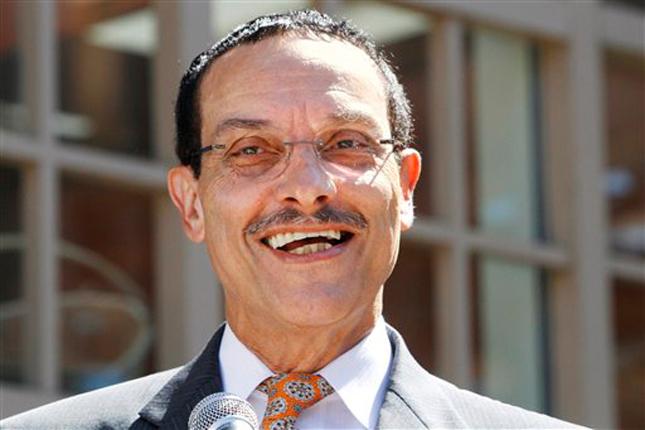Mayor Gray Discusses the Budget
By • July 26, 2011 0 1202

Mayor Vincent Gray took time to visit with the Kalorama Citizens Association this week. His arrival still seemed curious, even to himself, as it often is with newly minted and elected officials. And it’s already almost March.
“I remember this was one of the first places I came after I made my announcement to run for mayor,” he said. “Wasn’t even a year ago.”
He laughed to himself a little. “Seems more like 10 years ago, to tell you the truth.”
Since the triumphant elections, (the Democratic primary upset of incumbent Mayor Adrian Fenty) and the celebratory inauguration, reality has set in to some degree, much like the kind that’s setting in all over the country.
“I wish I came bearing good news,” he said. “But we’re in the same boat as everyone else. We have a major budget deficit to deal with and everyone is gong to suffer some. It’s about sharing the suffering.”
“It’s happening to everyone—look at our surrounding jurisdiction, look at Maryland, look at New York State and New York City where I just talked with Mayor Bloomberg who’s facing a huge deficit. We all commiserate. In Illinois, they balanced the budget—by raising the state income tax to over 60 percent. So these days it’s tough being a legislator, it’s tough being mayor, it’s tough making the hard decisions. But we’re going to do it, and we’re going to get through this.”
He said the city is facing a 2012 deficit of $500 to 600 million. “That means we’re facing severe cuts while trying to find ways to raise additional revenues.”
Gray said that he does not anticipate a control board takeover of the city. “It’s very simple,” he said. “I know people worry about it. That’s one of the constraints on our government that others don’t have. If we don’t balance the budget, we lose control. The reason that won’t happen is that I will never, never allow that to happen.”
“This is going to be about shared sacrifices and shared decisions,” he said. “One of the biggest problems we have is that we’ve spent down our fund balance account, basically our savings account. That’s how we managed to balance the budget the last few years. Now we’re looking at for 2012 a possible deficit in the neighborhood of $600 million. I always see this thing when I go around talking about cuts and sacrifices—and people nod their heads, they say yeah. But then [they say] not in my neighborhood, not my program, not this place.”
He continued: “There will be severe consequences, but we have no choice.”
“The good news is that our bond rating is not down. But we have an unhappy prospect and duty in front of us. It’s going to be difficult, but we will get through it and come out ahead at the end of it all. But for now and the next few years, no question things will be difficult.”
Gray appears to be turning into a passionate advocate for statehood. “Look at what’s happening,” he said. “They (the House) want us to eliminate anything to do with abortion; they’re telling us we can’t fund our needle exchange program, which is so effective in combating AIDS here. Mind you, they’re talking about what we can do with OUR money.”
“How much longer are we going to put up with this?” he asked.
He’s often said he’ll be an advocate and a strong one, but he wants people behind him. “I don’t understand the apathy about this,” he said. “We have the right—the duty—to make decisions about how we spend our money, and yet nobody seems to care. There’s always the same people who speak passionately about this. Look what’ s happening in the world, in Egypt, in Tunisia, all over the Middle East. People demonstrating for liberty and freedoms, including some freedoms that we ourselves don’t have here. Where’s our outrage? There’s no self-government, Lincoln said, unless everyone participates.”
His talk, with some question and answer time, came at a meeting that resembles other such meetings across the city—the body civic taking on such issues as noisy bars, which is a big topic in Adams Morgan where bars and night life are a large part of the commercial economy, but also a major quality of life nuisance for residents. It’s an eternal battle that reflects itself in other areas of the city, including Georgetown. There’s concern about shuttered storefronts—an increasing number here—and who here is going to be asked to share in the sacrifice.
“I’m not contemplating across-the-board cuts,” Gray said. “I think this is going to be a strategic approach. There are some cuts it just doesn’t make sense to do—we can’t eliminate job training and expect to deal with the several unemployment issues in our poorer wards, for instance.”

